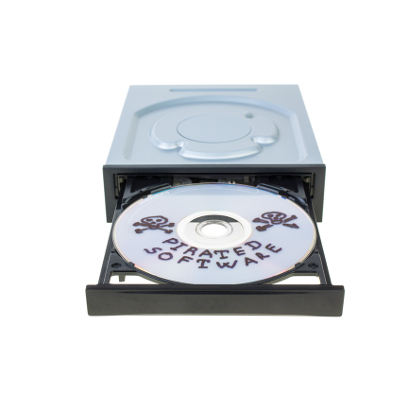A business owner must be aware of the licensing status of their company’s software, a task that has grown more complicated since the inception of the Internet. If you accept the fact that your employees or maybe even your corporate culture survives off of pirated software, applications or stuff you found “for free” online, then your business could potentially face costly legal issues.
Some businesses place themselves in this situation when they need certain software that is absolutely imperative to their success, but they can’t afford to purchase it. For businesses who don’t want to bite the bullet and buy the software, the magical place called the Internet may (or may not) have what they are looking for. Don’t succumb to this seemingly-attractive option.
In the early days of modern computing, you might recall seeing the “Don’t Copy That Floppy” anti-piracy campaign. The goal of this campaign was to eliminate copyright infringement. As said by MC Double Def DP, the “Disk Protector,” don’t copy that floppy:
The software developer responds to this action and your applications required for important projects are suddenly… gone. Or, at least, not working properly. Now, your time-sensitive projects have to wait for you to finally pay the piper.
That is, if the software company even gives you the chance to compensate them for the program before retaliating with lawsuits and fines. Before you know it, you’re responsible for thousands of dollars, in fines. HGExperts.com reports that this happened to the military/aerospace company A.E. Petsche:
Not only did they pay a fine of over $90,000 for using unlicensed copies of Adobe and Microsoft software, they also had to cover their own legal fees and the expenses of an intense audit. This left their reputation with a black-eye as well as possible ramifications to their federal government contracts.
We doubt your business can survive such massive fines. In order to prevent unnecessary legal expenses over something as trivial as software licensing, always be aware of what you are doing. Some businesses are not even aware they are pirating software, and can be charged with a crime even though they were unaware they were committing one. If you aren’t completely certain that you purchased and licensed every single piece of software you are using, you may want to think about saving up for that hefty fine; just in case you accidentally “copied that floppy.”
When it comes to software licensing, you shouldn’t leave anything to chance. Quikteks will work with you to manage your software licensing and will make sure that you are authorized to use each piece of software you acquire. Our managed IT solutions allow us to remotely check whether or not your software is legally acquired and licensed, and when the license will expires. With Quikteks by your side, you can rest easy knowing that your organization is as legitimate as can be. Give us a call at (973) 882-4644 for more information.

